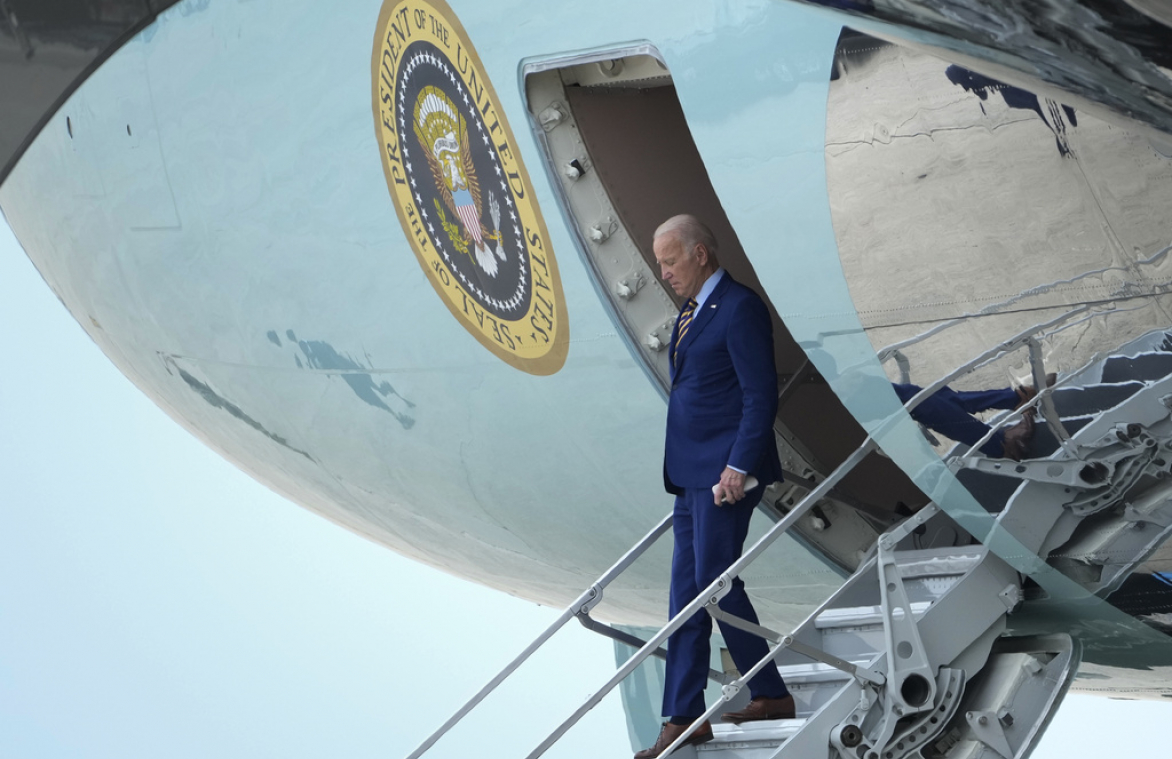President Joe Biden walks down the steps of Air Force One at Andrews Air Force Base, Md., July 6, 2023, after returning from a trip to South Carolina. AP Photo/Susan Walsh
Does the federal government have the right to encourage social media companies to bar posts that it contends offer false, misleading or potentially dangerous health information to the public?
That’s the issue at the heart of a case in which U.S. District Judge Terry Doughty issued an injunction ordering the federal government to refrain from — in his words — “contacting social media companies for the purpose of urging, encouraging, pressuring, or inducing in any manner, the removal, deletion, suppression, or reduction of content containing protected free speech posted on social-media platforms.”
It’s a broad order in a case in the early stages of litigation, and it’s unusual for a number of reasons:
- The social media companies are not plaintiffs in this case. In virtually every First Amendment case involving media, the plaintiff is someone who contends that the government has limited his or her free speech. Instead, this case was filed by Republican attorneys general from Louisiana and Missouri alleging that pressure from the government on social media companies infringed on the First Amendment rights of social media users.
- If a social media company censors content on its site, it’s not a First Amendment violation. The First Amendment protects us from government actions, not those of private companies. The plaintiffs are claiming that government pressure makes any removal of posts unconstitutional, even though an independent decision by a social media company would not be actionable.
- The judge has apparently already made up his mind. Although this case is at an early stage and there is a trial ahead, Judge Doughty made a point of issuing his ruling on the 4th of July. That in itself is very unusual, but came into focus with Doughty’s colorful opinion, which noted that “evidence produced thus far depicts an almost dystopian scenario. During the COVID-19 pandemic, a period perhaps best characterized by widespread doubt and uncertainty, the United States Government seems to have assumed a role similar to an Orwellian ‘Ministry of Truth.’ ” A judge citing George Orwell’s novel 1984 before even hearing testimony is not a good sign for the government. In rejecting a request on July 10 to place his order on hold, Doughty also said he believed the government would lose the case.
- The judge’s order is far-reaching and in some respects unprecedented. As Jameel Jaffer, the executive director of the Knight First Amendment Institute at Columbia University, told The New York Times, “It can’t be that the government violates the First Amendment simply by engaging with the platforms about their content-moderation decisions and policies … . If that’s what the court is saying here, it’s a pretty radical proposition that isn’t supported by the case law.” The language is broad and would seem to bar government speech that attempts to “discourage” the posting or publication of content protected under the First Amendment. As a newspaper editor for many years, I know firsthand how often government officials call news media to urge them not to publish constitutionally protected articles, either because they have a self-interest or claim to have a government interest. Were my free-press rights violated? I always had the right to ignore the calls, just as social media companies do. If the government ordered Facebook to take down posts, that would be a clear violation of the First Amendment, but where do expressions of concern fall?
Government lawyers have characterized the judge’s injunction as a gag order on the federal government and have filed a request for an emergency stay with the 5th U.S. Circuit Court of Appeals. (Update: The Associated Press reported that the 5th Circuit on July 14 temporarily paused Doughty’s order.)
The Free Speech Center newsletter offers a digest of First Amendment and news media-related news every other week. Subscribe for free here: https://bit.ly/3kG9uiJ

